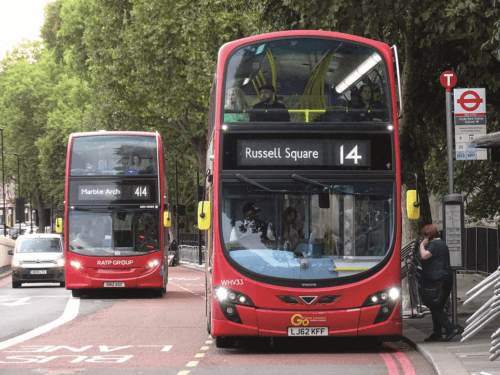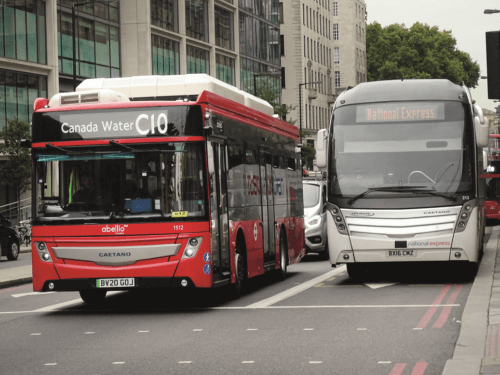
Only three bus routes out of TfL’s 620 total network will now be withdrawn, whilst 53 other routes which were proposed for withdrawal or amendment will not be affected after additional funding was found
Additional funding provided by the Mayor has allowed Transport for London (TfL) to reassess its proposals for the city’s bus network and cancel many of the proposed changes which it put forward to illustrate what could happen if funding were not forthcoming. TfL had to rely on a series of short-term Government funding deals during the pandemic, which had a series of conditions and requirements, including to make savings equivalent to 4% of the bus network, and the package of changes was proposed to help achieve that goal.
To support TfL in responding to the issues raised in the response to consultation on the cuts, the Mayor of London has identified additional funding for TfL averaging around £25m per year in addition to a £500m City Hall financing facility, which is still required for TfL to maintain a balanced budget.
TfL will still go ahead with 22% of the service changes consulted on, which are all in areas with numerous alternative public transport options and where following the changes there will still be enough capacity on buses to meet demand. Passengers will still be able to make the same journeys, though with additional changes in some instances. By going ahead with the remaining proposals, TfL says it will be able to improve the reliability of buses in central London, while allowing for investment in bus provision in outer London.
Mayor Sadiq Khan said: “I was furious on behalf of Londoners that TfL was having to consider reducing the bus network due to conditions attached by the Government to the funding deal. The strength of feeling across the capital was clear to me, and I was adamant that I would explore every avenue available to me to save as many buses as possible.
“This will mean tough decisions elsewhere, but I am very pleased that the vast majority of bus routes proposed to be cut due to the Government’s funding conditions can now be saved. TfL has looked carefully at the small amount of routes still affected in order to reduce the impact on passengers as much as possible. Buses sit at the heart of the capital’s transport network and have a key role to play as we continue building a better, greener and fairer city for all Londoners.”

Geoff Hobbs, TfL’s Director of Public Transport Service Planning, added: “This new funding, alongside our detailed analysis of the extensive consultation feedback and emerging travel patterns, has allowed us to significantly reduce the scope of the changes. The proposals that we will be taking forward are those that have a minimal impact on Londoners, as they are areas with much higher provision of buses than there is demand.
“Buses have a vital role to play in a sustainable and growing London. We have been able to protect investment in our zero-emission bus fleet, ensuring we are supporting the capital’s economic recovery and encouraging people to make environmentally friendly travel choices.”
TfL said that more than 21,500 people shared their feedback to help it shape the changes. Respondents, it said, were most concerned about having to change buses. Currently around 19% of bus journeys in London involve an change of bus, TfL says, and the new plans will see that increase to 20%. London’s Hopper fare allows unlimited bus travel within an hour. In total, TfL will carry out 11 out of 57 day or 24-hour route changes and three route withdrawals out of the originally proposed 22. There will also be changes to four night bus routes.

